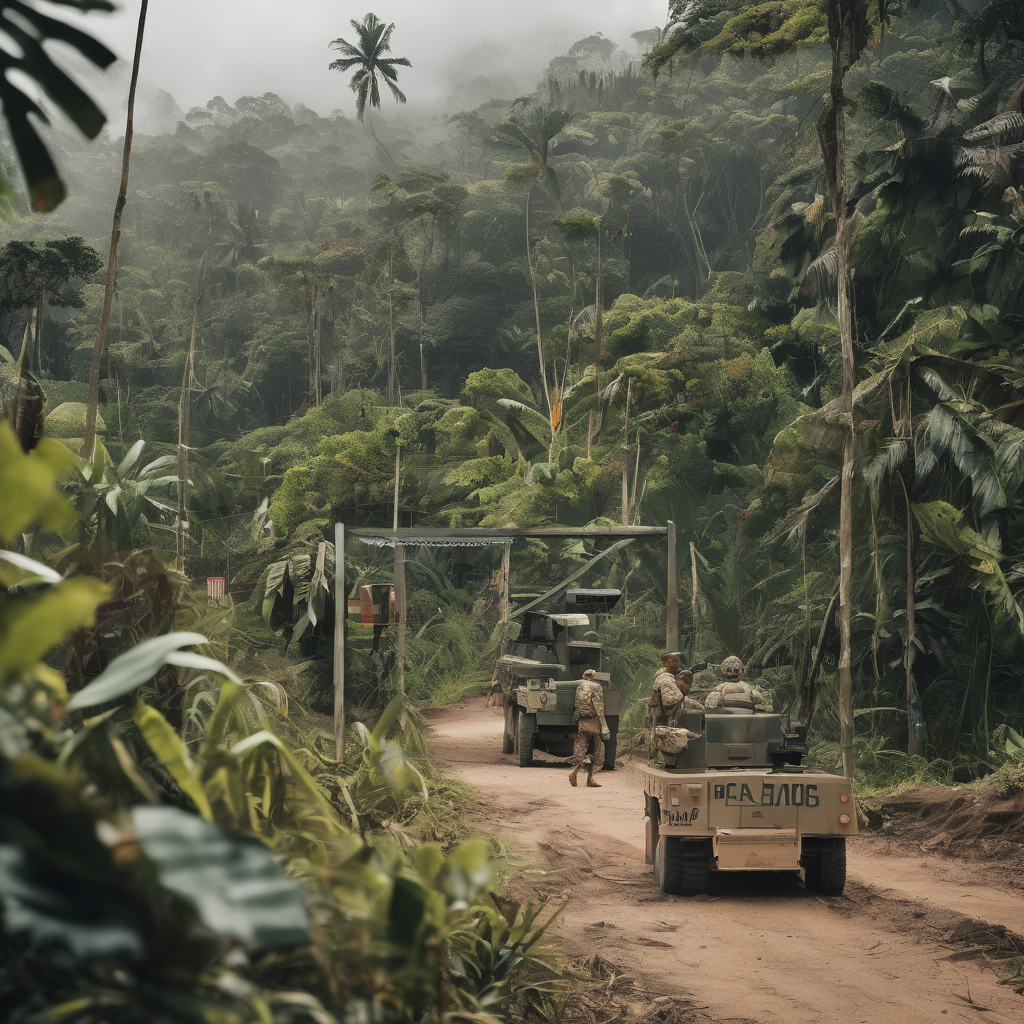The ongoing conflict in Colombia has become intertwined with international issues, particularly regarding drug trafficking and relations with neighboring Venezuela. The Catatumbo region, which lies along the border of Venezuela in Colombia’s Norte de Santander department, has emerged as a flashpoint of violence, largely driven by the activities of various armed groups competing for control of the territory’s lucrative coca crops and oil reserves.
Colombia’s National Liberation Army (ELN), the country’s largest active guerrilla organization, has consolidated its presence in this border area, significantly impacting the local dynamics. Reports indicate that these armed groups engage in fierce territorial disputes, leading to the displacement of thousands of civilians. Notably, clashes between the ELN and dissident factions of the Revolutionary Armed Forces of Colombia (FARC) have exacerbated tensions, prompting a humanitarian crisis in an area already beset by poverty and neglect.
A recent field report from Al Jazeera provides a glimpse into the situation, where the ELN operates with apparent impunity. There is a notable absence of government military presence, suggesting the group’s dominance in the region. Flags adorning the area reveal their disdain for the peace initiatives advocated by President Gustavo Petro, who had aimed for a “total peace” approach with criminal organizations. However, negotiations with the ELN have proved complex, and many believe the peace process is faltering.
Commander Ricardo, a leader within the ELN, expressed a desire for a political resolution, emphasizing the group’s longstanding commitment to seeking peace through dialogue. His sentiment reflects a broader frustration with the current state of negotiations, which he feels have stalled under President Petro’s administration, indicating a disillusionment with the peace process that has been marred by violence and setbacks.
The situation is compounded by the geopolitical tension involving the United States and its military operations aimed at disrupting drug trafficking routes connected to Venezuela. The U.S. has dramatically increased its military presence in the Caribbean, targeting suspected drug vessels, which has raised concerns and prompted Venezuela to formally request that the United Nations Security Council investigate these military actions as violations of its sovereignty.
This complicated narrative illustrates how local conflicts, international drug trafficking, and geopolitical tensions are deeply interwoven, making the path to peace in Colombia increasingly challenging. As stakeholders on both sides of the border grapple with issues of violence and the humanitarian crisis, there is an ongoing hope that renewed dialogue and concerted international efforts could eventually lead to a more stable and peaceful resolution. Such advancements would not only provide relief to Colombian communities but also address the intricate dynamics of drug trafficking in the region, underscoring the need for cooperative solutions that prioritize humanitarian considerations.
